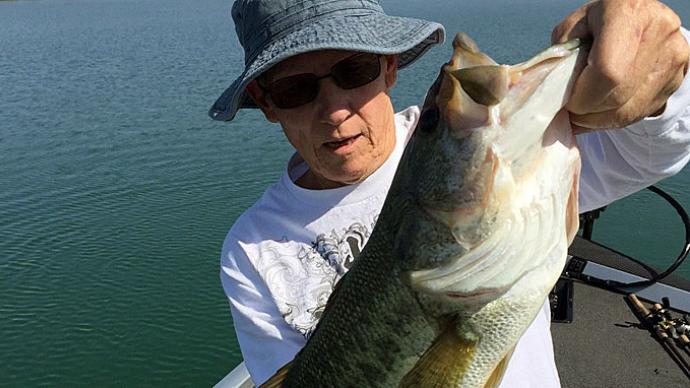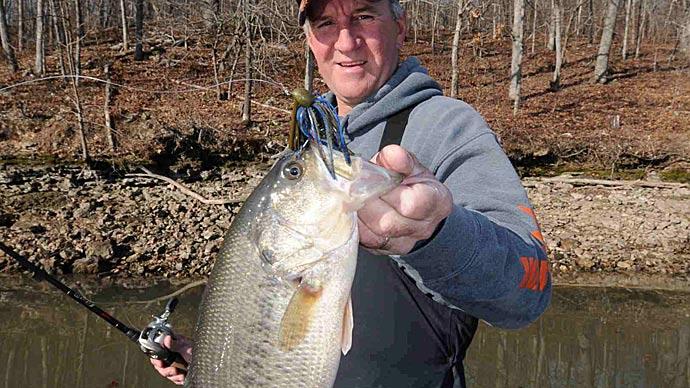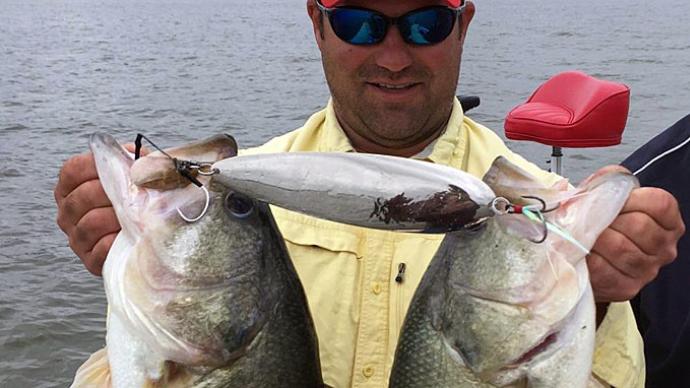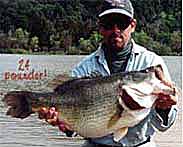
How often do you hear the story about the ENORMOUS fish that was caught, yet, it never made it to a scale or graced the lens of a camera? Or what about the guy who caught the lake record, yet the fish was disqualified because his fishing license had expired? Or what about weighing a big bass on the bathroom scale? These stories are part of OUR legacy as it relates to fishing, and just when we think we have heard it all, a new and unbelievable story will usually pop up.
Almost 100 years ago, on January 2, 1911, William Howard Taft and Theodore Roosevelt helped establish the Boy Scouts of America. On that day, way back when the Scouts adopted a motto many of us are familiar with. Most of us had to memorize that "official" motto as kids. Of course, you remember it's . . . "Be Prepared!"
Reflecting on when the motto was established, I wondered what could have led these very famous individuals to come up with such a profound statement other than their outdoor experiences. My reflection caused me to dig a little deeper. I looked up the word "Prepared" in the dictionary. It said that "Prepared," outside its standard definition, is associated with other words like intelligence, wisdom, and foresight. I believe history has attached those words to the likes of Presidents Taft & Roosevelt.
So, how can we prevent ourselves from becoming just one of those crazy fishing stories? Well, it's easy. Let's use intelligence, wisdom, and foresight, and most importantly, be prepared!
Some of you might be saying, "I'm already prepared." Of course, most are. Just look at your organizational or preparedness skills regarding your fishing equipment or tackle. Some of your garages rival the best-stocked aisles or shelves at Bass Pro Shops. You are so organized. Yet, are you prepared? Do you know how to certify a big fish? What if you are fishing in a small pond or large lake? Are you ready? Many of us dream of that moment when mother nature delivers that once-in-a-lifetime experience. Yet, I'd venture to say that 99% are not prepared for that exact moment.
Being prepared means forming habits and procedures that are implemented and used at all times. First, day-to-day habits take about thirty days to form, or in other words, you'll need to do the same procedure about thirty times to form the habit. You see, certifying and being prepared for those big fish takes a consistent effort in organization and preparedness. Regardless of fishing a pond or lake, I gather the tools of my trade and follow the same procedures each time. I am always prepared.
Be Prepared With The Following Tools:
-

- A tape measure. A simple investment of about two dollars will get you a tape running out seventy-two inches or six feet.
- The camera. I use a simple digital camera on my phone. When I started certifying fish in 1997, I started with a 12-exposure disposable camera made by Kodak. The main point is to have a camera to document your fish. Be sensitive to how you take your photos. Make sure to be careful of background, standing too close or too far, shadows, and how your face may look with the shadow of your baseball hat, and for you movie stars, remember to remove your sunglasses!
-
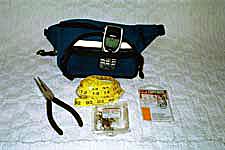
-

The mailing labels I use contain the names and addresses of the three contests I am enrolled in. Because one fish can qualify for all three, it's much easier to have all the addresses preprinted on labels so I can insert the photos and certification forms in an envelope, place the corresponding address label, and mail the information right away.Date:
Type of fish:
Weight:
Length:
Girth:
Method:
Witness:
Comments: -
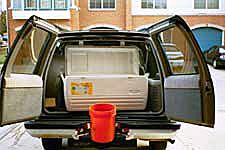
Now, here is why you want to be this prepared. When you bang a fish, that is that once-in-a-lifetime experience you have been waiting for, and most fisherpeople will LOSE their minds! They get so wrapped up at the moment, hootin', hollerin', and all those other emotional things (yes, admit it, bass fisherpeople have emotions!) that go on when catching a big fish they forget to follow the correct procedures it takes to certify a fish properly. So, when I bang a big fish, I can lose my mind for a few moments, hoot and holler, then revert to the certification book that will remind me of everything I need to do before releasing the fish back to the lake.
This may seem like a lot of work, but being prepared will be worth it, mainly when that once-in-a-lifetime moment occurs. It's not enough to have all your rods organized perfectly in your rod box or to have your tackle boxes just a certain way. Count on banging a big fish, then Be Prepared to act on it when it happens, and it will.
Chuck Bauer is a noted Big Bass Specialist who has been recognized many times by various organizations, including Bassin' Magazine, Texas Fish & Game, North American Fisherman Magazine, Outdoor Life, Texas Hunting and Fishing News, The Dallas Morning News, and Texas Outdoor Times Magazine. In addition, Chuck is a Professional Member of the National Speakers Association and is on Pro Staff for Kick-n-Bass.
Chuck also does free fishing seminars in and around the Dallas/Ft. Worth Metroplex.


